Divers are dwarfed by a 26-foot-long 'sea pickle'
An amazing video shows the moment two divers found themselves dwarfed by a 'sea pickle' measuring more than 26 feet (8 metres) long.
Longtime friends Steve Hathaway, 56, and Andrew Buttle, 48, were diving near a small island off New Zealand's northeastern coast when they discovered the gelatinous mass.
The hollow, wind-sock-like creature is actually a colony of hundreds of thousands of tiny organisms.
In the video, it can be seen moving delicately through the water, occasionally shuddering and pulsating, while the two divers swim gently around it.
Initially diving to record footage of White Island, a volcanic island 30 miles (48 km) from New Zealand's mainland, Mr Hathway and Mr Buttle's focus was stolen by the strange organism.
At a depth of around 32 feet (10 metres), the organism slowly travelled around 656 feet (200 metres), taking on many different shapes and sizes.
Mr Buttle, who is a pilot by day, said: 'Having never seen one in person or even footage or photos of one before, I was quite incredulous and elated that such a creature existed.
'It was very puzzling but also fantastic to be able to view it right up close and spend so much time with it.
'The island is 48 kilometres from the mainland, and there is a vast amount of fish life and nutrients in the water that may have had the right circumstances to become so large.
'I believe it is possibly a Pyrosome - occasionally they are caught in nets but not many intact large specimens have been caught to my knowledge.
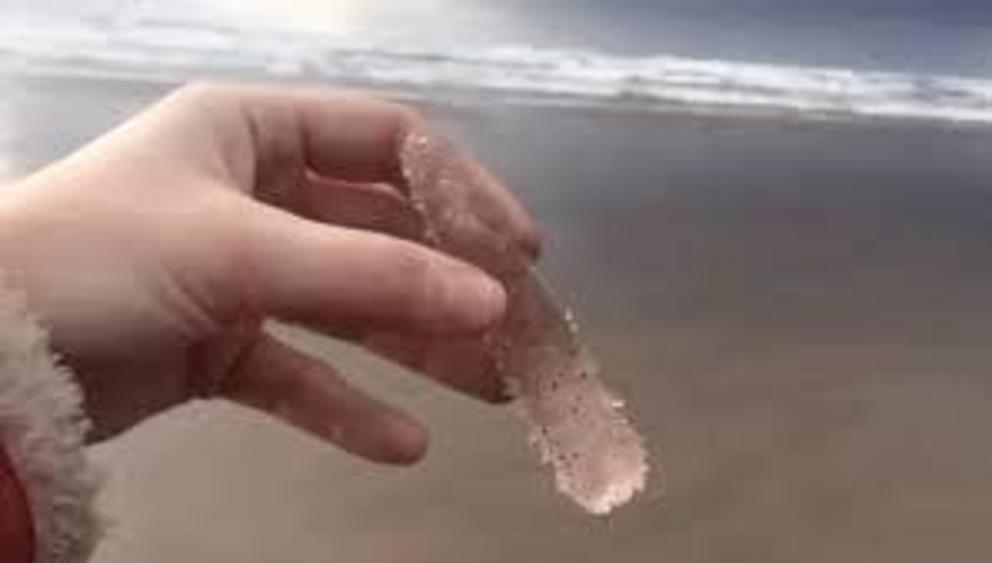
WHAT IS A SEA PICKLE?
Pyrosomes, commonly known as sea pickles, are free-floating colonies of tiny organisms called zooids.
Each zooid is just a few millimetres in size, but the creatures can embed themselves into a gelatinous tunic.
Colonies can stretch to several feet long.
Sea pickles are typically found near the surface in warm waters.
Their movements are controlled by currents, tides, and waves in the oceans.
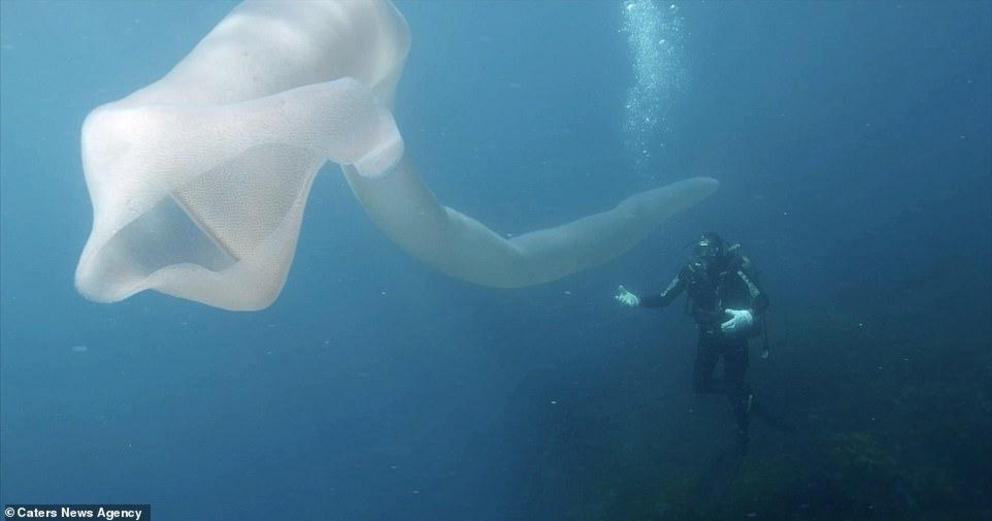
An amazing video shows the moment two divers found themselves dwarfed by a 'sea pickle' measuring more than 26 feet (8 metres) long
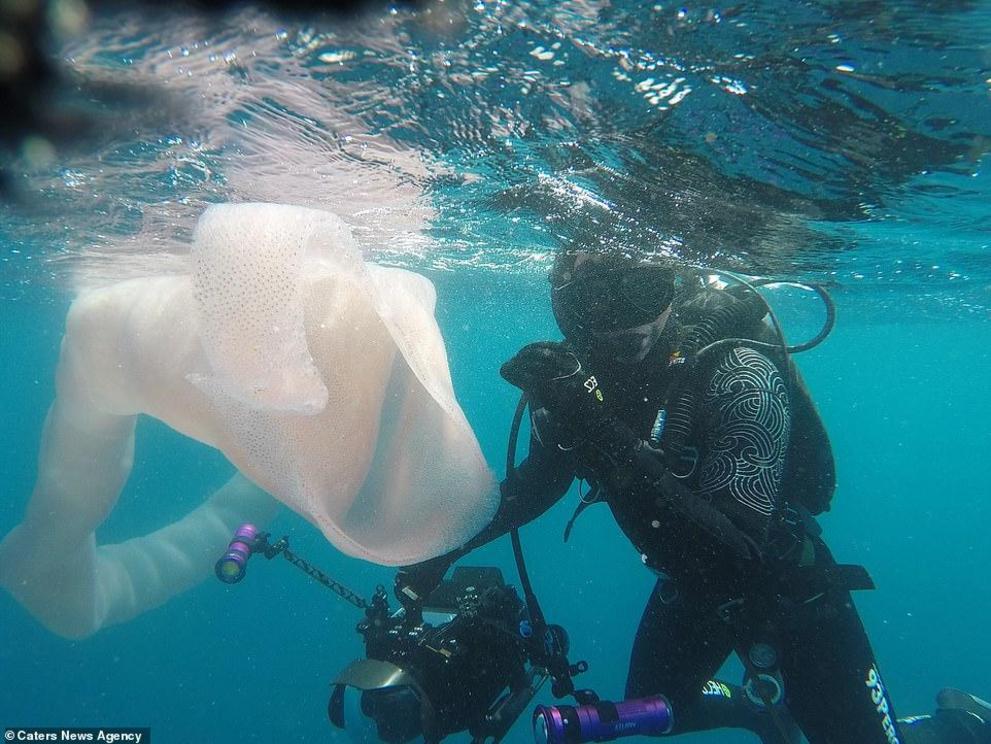
Longtime friends Steve Hathaway, 56, and Andrew Buttle (pictured), 48, were diving near a small island off New Zealand's northeastern coast when they discovered the gelatinous object
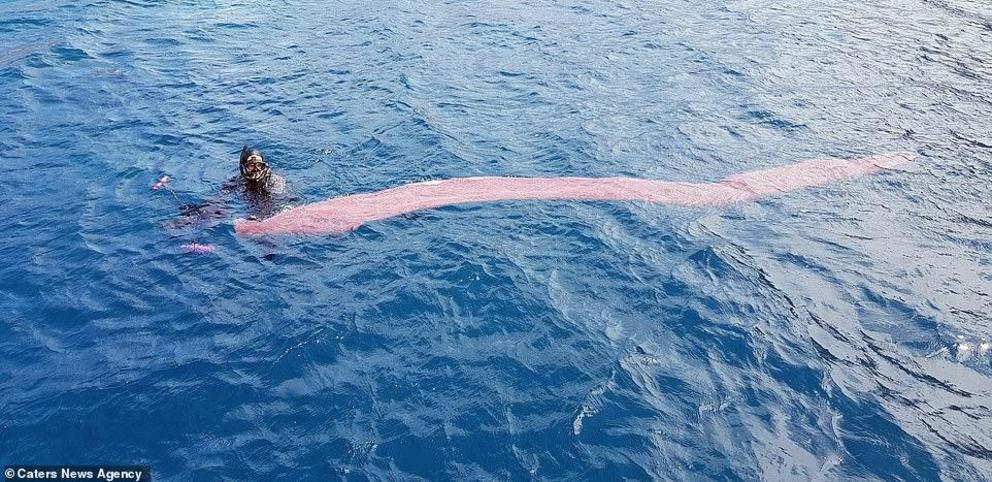
The hollow, wind-sock-like colony, which is made up of hundreds of thousands of tiny organisms, can be seen moving delicately through the water, occasionally shuddering and pulsating. Pictured is Mr Buttle with the worm
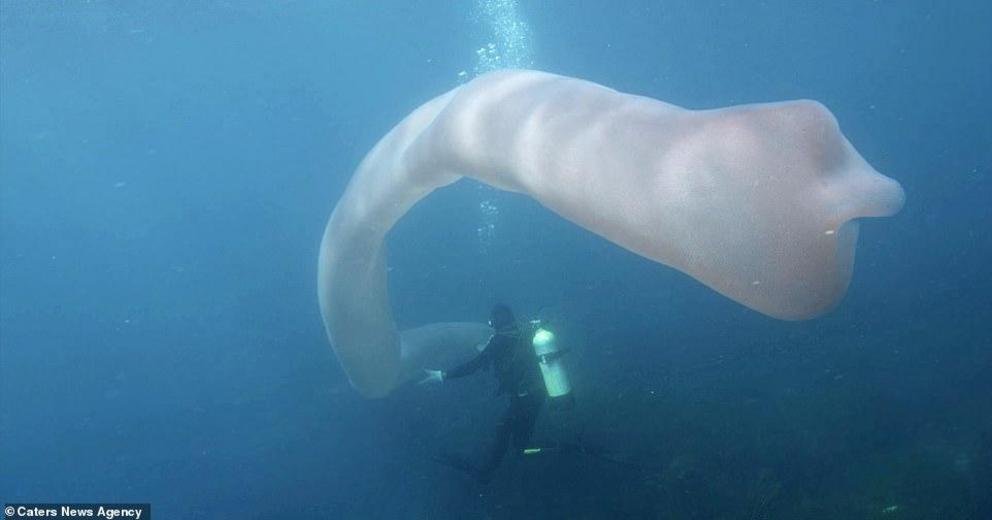
Initially diving to record footage of White Island, a volcanic island 30 miles (48 km) from New Zealand's mainland, Mr Hathway and Mr Buttle's (pictured) focus was stolen by the strange organism
'At times there can be blooms of thousands of small versions of these creatures in many parts of the world, but not something I had ever seen before.'
Pyrosomes, commonly known as sea pickles, are free-floating colonies of tiny organisms called zooids.
Each zooid is just a few millimetres in size, but the creatures embed themselves into a gelatinous tunic that connects all of the individuals into a colony that can stretch to several feet in size.
Sea pickles are typically found near the surface in warm waters, and their movements are largely controlled by currents, tides, and waves in the oceans.
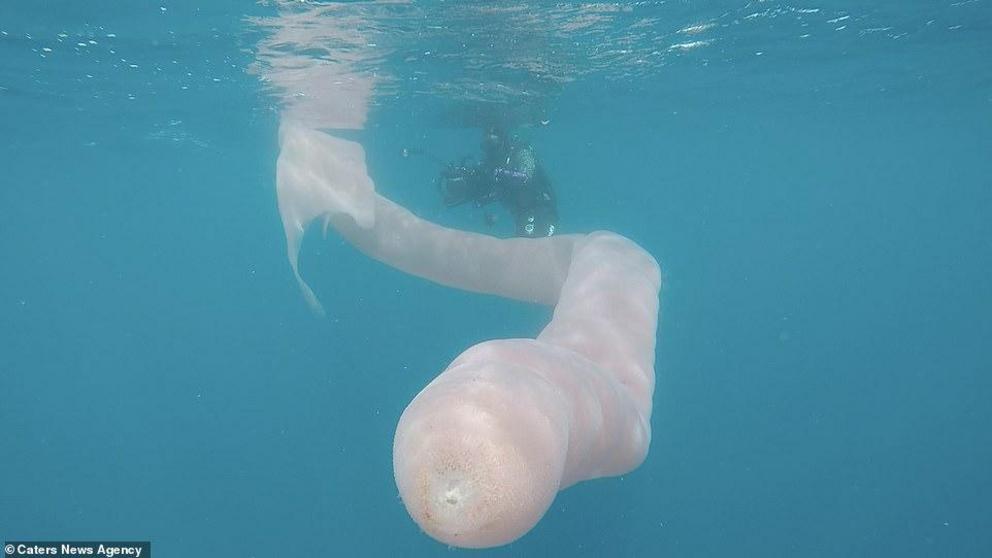
At a depth of around 32 feet (10 metres), the organism slowly travelled around 656 feet (200 metres), taking on many different shapes and sizes
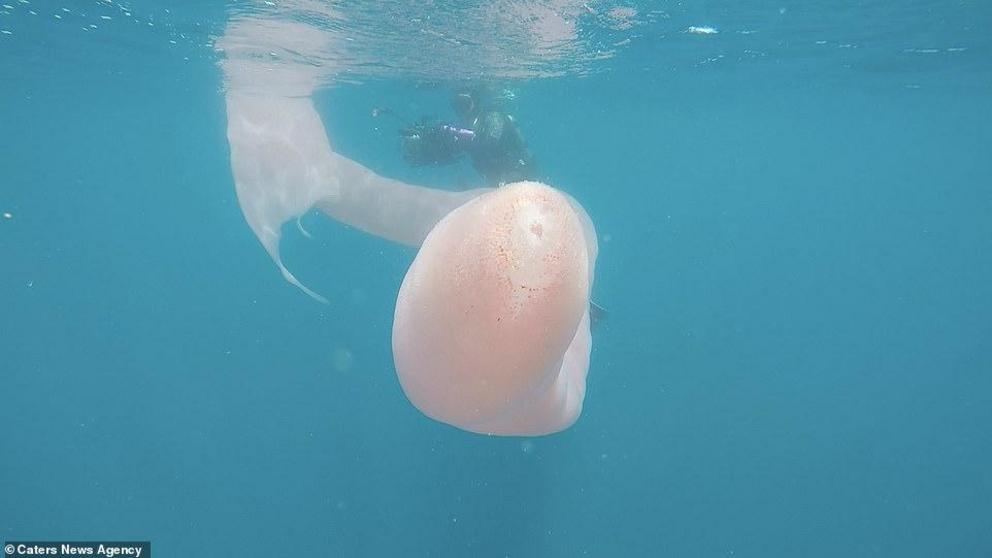
Mr Buttle, who is a pilot by day, said: 'Having never seen one in person or even footage or photos of one before, I was quite incredulous and elated that such a creature existed'
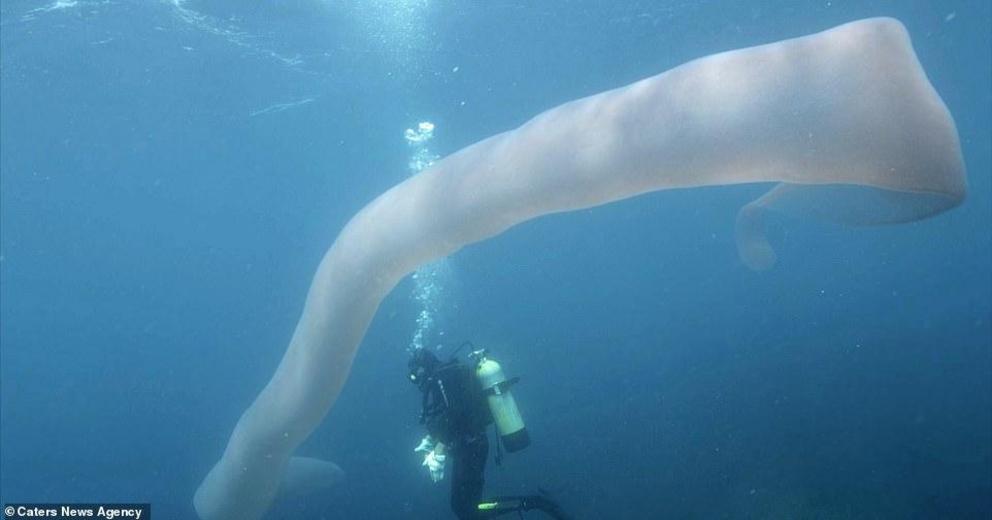
Pyrosomes, commonly known as sea pickles, are free-floating colonies of tiny organisms called zooids. Each zooid is just a few millimetres in size, but the creatures embed themselves into a gelatinous tunic
Mr Hathaway, who founded Young Ocean Explorers, an educational entertainment platform encouraging children to explore the world's oceans, said: 'Without a doubt the highlight of the trip was to find the pyrosome - I've wanted to see one for many years now.
'The ocean is such a fascinating place and much more fascinating to explore when you actually understand some of what you see, such as the different behaviours.'
Mr Buttle inherited the active volcanic island from his late grandfather, who only managed to visit his purchase from the government for half an hour.
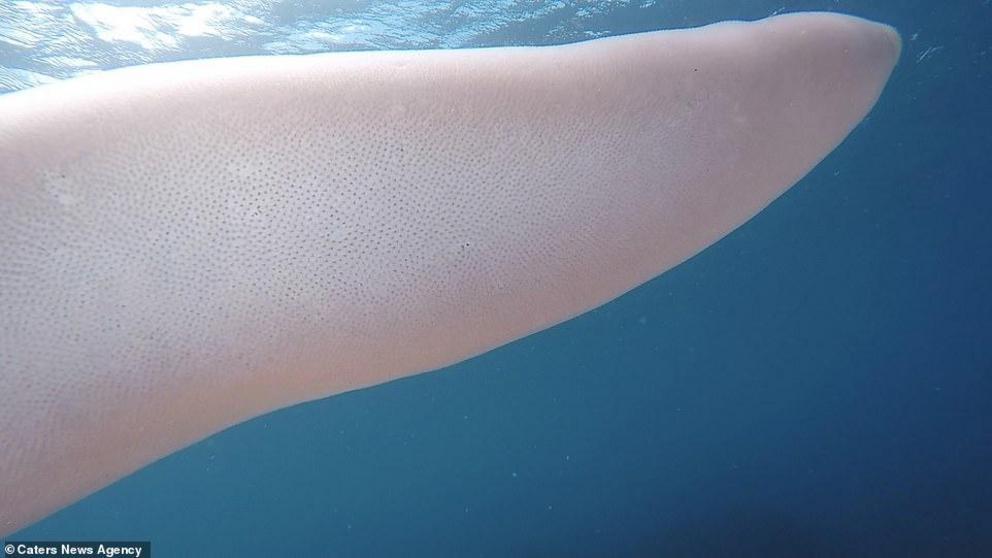
Sea pickles are typically found near the surface in warm waters. Their movements are controlled by currents, tides, and waves in the oceans
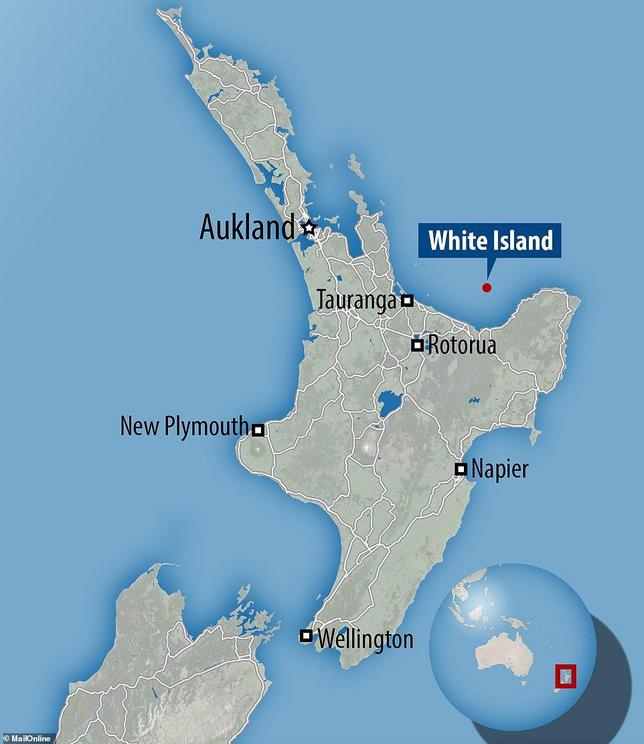
The sea pickle was spotted by divers off White Island, a small volcanic landmass off the eastern coast of New Zealand's north island
For full references please use source link below.
Video can be accessed at source link below.
